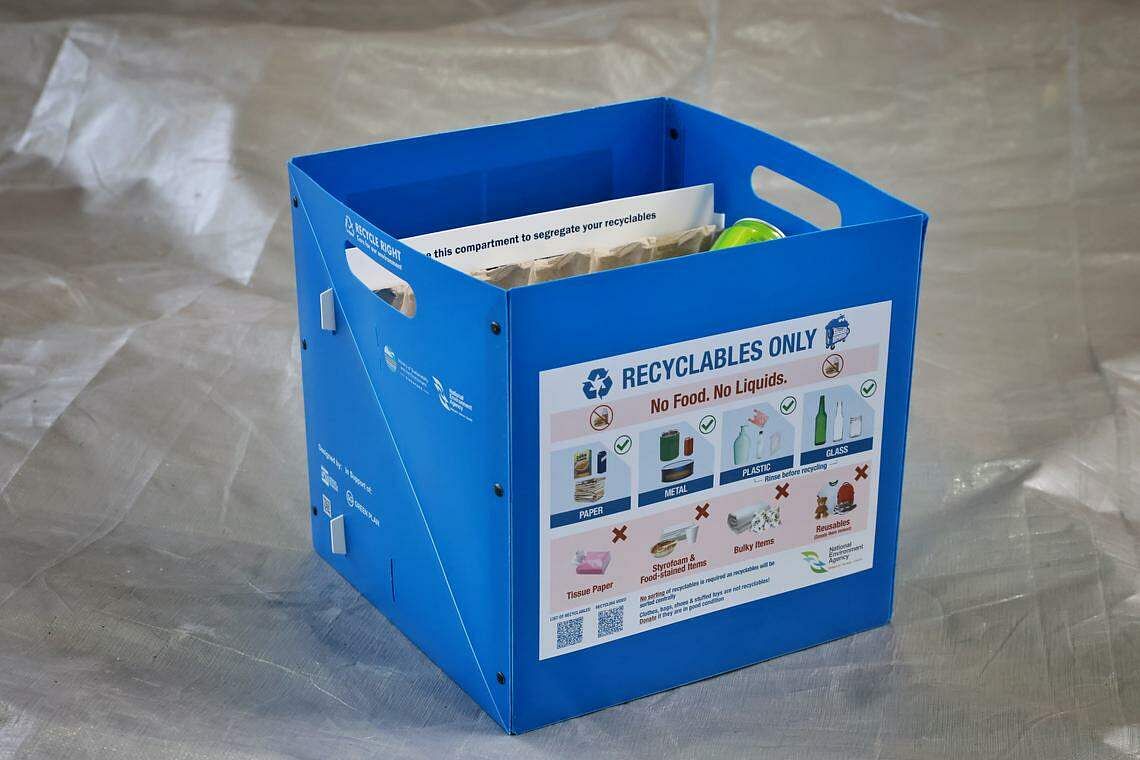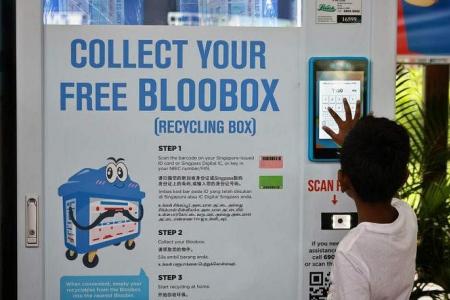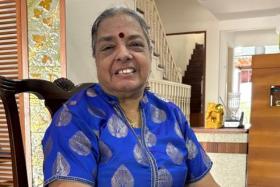Only 1 in 5 households has collected free recycling box
Only slightly more than 300,000 households have collected the reusable boxes for recycling distributed by the National Environment Agency (NEA) even though the deadline for collection is in a week’s time, on April 30.
This translates to about 20 per cent of the 1.39 million households here.
Many people The Sunday Times spoke to said they did not collect the box, known as Bloobox, as they did not think it would boost recycling.
Others said they did not need the box as they already had their own recycling corners at home.
Consultant Lim Kian Chong, 28, said he already has a system to sort recyclable rubbish at home and did not need the box.
“I don’t think the box will add value for people who are already recycling,” he said.
Social media influencer Kimberly Tham, 20, did not collect the box as she feels it would not move the needle.
“There is no carrot or stick to influence habits. We could learn from the beverage return scheme that has popped up in supermarkets of late, or the foodcourt and hawker centre tray return initiative,” she said.
Launched by NEA on March 19, the foldable, washable Bloobox is intended to be set up as a personal recycling bin in homes.
The Bloobox can hold up to 5kg of paper, plastic, metal and glass recyclables, as well as electronic waste.
Instructions printed on it help users identify what can and cannot be recycled. For example, paper and plastic can be recycled, but styrofoam and food-stained items cannot. Food or liquids should also not be placed in the Bloobox.
The box comes with a removable divider that can be used to create a separate compartment for small electronic waste items, such as light bulbs and batteries.
The recyclables collected in a Bloobox can be dropped off at blue recycling bins or recycling chutes, which are more common in newer Housing Board blocks.
Nationwide distribution of the Bloobox began on March 19 through vending machines across Singapore at common spaces such as community clubs and selected bus interchanges.
To boost the collection rate, the NEA last week added schools to the distribution venues, where around 60,000 more of the boxes are expected to be distributed.
Residents may visit gowhere.gov.sg/bloobox to check the locations of the nearest vending machines and current stock levels.

Even among those who had collected the box, some did not use it as intended.
Special needs educator Koh An Ding, 35, said: “My father used it to store his shoes even after I told him that it should be used for recycling.”
Ms Koh herself is sceptical of the initiative, although she has been putting recyclables into the blue recycling bins at the void deck of her flat.
“Most of my friends and I feel that it might be pointless, given that others may put contaminated items in the bins,” she said.
The NEA had said that around 40 per cent of all items put in the blue bins are not suitable for recycling because of contamination, or they are not made of materials that can be recycled.
“It might be more effective to reduce the production of waste than promote recycling,” said Ms Koh.
Aware of these challenges, Ms Jeanne Liu, 53, who runs a cake shop, said she plans to use the box to educate her helper.
“A lot of the time, it’s either the helpers or the elderly who do not know what can or cannot be recycled,” she said, noting that she often finds food-contaminated items in recycling bins.
One expert said that the low collection rate is a reflection of the lack of readiness for recycling, and much more needs to be done to educate the public.
“There are still many people who do not bother to recycle, much less recycle right,” said Singapore University of Technology and Design senior lecturer Lee Chee Huei.
He said the Bloobox may even add to waste if not used properly.
Ms Kathlyn Tan, a director of Rumah Group, a family office for sustainable investments, said the Government’s distribution of the free Bloobox is a good education initiative itself on what can be recycled.
“Visible cues on packaging, more accessible recycling bins, as well as clarity on where and how our recyclables are recycled, are just some of the ways to continue promoting recycling in Singapore,” she said.
Get The New Paper on your phone with the free TNP app. Download from the Apple App Store or Google Play Store now


